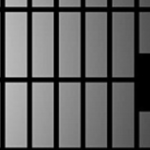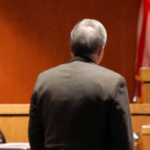Constitutional Right to Effective Defense Counsel
Under the Michigan and federal Constitutions, a defendant has the right to an effective attorney. The analysis used by courts to determine whether there was ineffective assistance of counsel is complicated.

U.S. Supreme Court to decide a case regarding ineffective assistance of counsel
The United States Supreme Court started its new term on October 5, 2015. On that date, it agreed to decide the case of Maryland v Kulbicki, a case dealing with the issue of “ineffective assistance of counsel.” In that case, Mr. Kulbicki was convicted of a 1995 murder. Mr. Kulbicki appealed, claiming his attorneys were ineffective. The basis for that claim was a test commonly used that determined similarities in bullets to the extent that the bullets likely came from the same package. This test was known as the Comparative Bullet Lead Analysis (C.B.L.A.). The report from the ballistics expert was available, but Mr. Kulicki’s counsel did not attempt to get a copy.
When the Court heard the appeal in 2006, the C.B.L.A. test was no longer commonly used and was disfavored by most courts. The Maryland Court of Appeals decided that the defense attorney should have gotten the report, spotted the test’s flaws, and used those flaws to cast doubt on the test during his cross-examination.
The United States Supreme Court determined that defense counsel could not have foreseen that a commonly used test would be disfavored 11 years later. The Maryland Court of Appeals was wrong because to decide otherwise would be to expect perfect representation by defense counsel, which is an unreachable standard.
The United States Supreme Court will hear oral arguments on this case sometime during its term, ending in Spring 2016.
“Will the Judge Be Angry if I Switch Attorneys?”
When facing legal challenges, the choice of attorney is paramount. Clients often worry about the repercussions of switching lawyers, especially in the midst of a case. A common concern is whether such a change will incur the judge’s displeasure.
Contrary to what many might fear, judges are typically pleased when an individual opts for a respected and experienced trial lawyer as their new representation. Judges value efficiency, clarity, and the smooth operation of the courtroom. Experienced trial lawyers are known for navigating the legal system adeptly, negotiating effectively with prosecutors and judges, and resolving case disputes or evidentiary issues without unnecessary drama. Their deep understanding of the law and procedural nuances generally leads to a more streamlined and effective legal process.
Furthermore, judges and prosecutors prefer that defendants and their lawyers have a cooperative and solid relationship. A strong client-attorney bond is crucial not only for the immediate outcomes of the case but also for the long-term satisfaction of the involved parties. This positive relationship significantly reduces the likelihood of appeals based on claims of ineffective assistance of counsel—a scenario that can prolong legal proceedings and add layers of complexity to the judicial system.
Therefore, switching to a seasoned trial attorney can be seen as a strategic move toward ensuring a fair trial and optimal case outcome. It signals to the court that the defendant is serious about their defense and committed to engaging with the legal process in the most constructive and informed manner possible.
At LEWIS & DICKSTEIN, P.L.L.C., our team is composed of highly respected and effective criminal defense lawyers who bring years of experience and a deep commitment to our clients’ defense. Our reputation precedes us in the courtroom, and our involvement is often appreciated by judges and prosecutors, who recognize the value we bring to the proceedings.
The decision to switch attorneys should be made carefully, considering one’s legal needs and the case dynamics. If you are contemplating such a change, remember that your primary goal is to secure the best representation for your situation. Far from being a cause of judicial annoyance, choosing a highly qualified and experienced attorney is a step towards a more efficient, fair, and smoothly run legal process.
Appealing a Case of Ineffective Assistance of Counsel
The current standard for determining ineffective assistance of counsel is found in Strickland v. Washington, 466 U.S. 668 (1984). The court announced a two-prong test to determine if counsel is ineffective. The first prong is whether the attorney’s performance was so deficient that it fell below the objective standard of reasonableness. The test’s second prong is whether the deficiency in legal representation was prejudicial to the defendant. In other words, “but for” the attorney’s deficient performance, the result would have been different. This standard is pretty high.

“What do I do if my lawyer isn’t fighting for me?”
If you feel that your attorney was ineffective in representing you, it is essential to have the situation reviewed to protect your interests and rights. The attorneys at LEWIS & DICKSTEIN, P.L.L.C. have handled many appeals for clients who did not receive effective assistance of counsel during trial, plea process, and sentencing. Our attorneys feel strongly that a person needs the best legal representation available. If that is not provided, then ineffective assistance of counsel claim may be appropriate, and a person can have another chance with an attorney who will do it right. LEWIS & DICKSTEIN, P.L.L.C. will be happy to review any case for possible appeal and a possible claim for ineffective assistance of counsel. We will give an unbiased opinion of whether or not an appeal may be successful.
Frequently Asked Questions (FAQs) Regarding Ineffective Assistance of Counsel
How can I tell if my lawyer is really fighting for me in a criminal case? Look for proactive communication, a clear strategy, regular updates on your case, and a willingness to answer your questions comprehensively. If your lawyer isn’t communicating with you and putting effort into your defense, you should consider that a red flag for potential ineffective assistance of counsel.
What are the signs that my defense attorney isn’t on my side? Red flags include lack of communication, indifference to your case, not explaining the legal process or strategy, and showing little interest in your input or concerns.
Is my lawyer doing everything possible to defend me against criminal charges? An effective lawyer will explore all legal avenues, including negotiating plea deals if appropriate, challenging evidence, and advocating strongly on your behalf in court.
Why does it feel like my attorney is not taking my case seriously? This might be due to poor communication or a mismatch in expectations. Addressing these feelings directly with your attorney is essential to clarify any misunderstandings.
What should I do if my criminal defense lawyer isn’t effectively advocating for me? Discuss your concerns openly with your lawyer. If the issue isn’t resolved, consider seeking a second opinion or consulting with another attorney about taking over your case. The seasoned and successful criminal defense lawyers with LEWIS & DICKSTEIN, P.L.L.C. offer free consultations to anyone who believes their attorney is not protecting and defending them.
How often should my lawyer communicate with me about my case to show they are fighting for me? Communication frequency can vary based on the case’s developments, but your lawyer should keep you informed about significant updates and be accessible for your questions.
Are there specific questions I should ask my attorney to ensure they are fully committed to my defense? Ask about their strategy for your case, how they plan to communicate with you, their experience with similar cases, and how they foresee the case proceeding.
What are my options if my current lawyer isn’t adequately defending me in court? Consult a new criminal defense lawyer if you believe your current attorney might be ineffective. Remember, it is best to be proactive because appellate courts are reluctant to reverse convictions based on ineffective assistance of counsel. If necessary, you can retain a new attorney who is better suited to your needs and more committed to your defense.
How do I confront my lawyer about concerns that they might not be acting in my best interest? Schedule a meeting to discuss your concerns directly, being specific about what actions or behaviors prompted them. An open and honest conversation ensures that your legal representation aligns with your needs and expectations.

Effective, Affordable, and Aggressive Defense Attorneys
The attorneys at LEWIS & DICKSTEIN, P.L.L.C. make it a point to be the best-prepared attorneys in any courtroom they enter. It is essential to the attorneys with LEWIS & DICKSTEIN, P.L.L.C. that our clients get the best representation available. Our attorneys have sterling reputations and track records of success in and out of the courtroom. They are often sought out as speakers at continuing legal education events. When you are in trouble, you want the best legal help you can get: LEWIS & DICKSTEIN, P.L.L.C. Our attorneys take our obligation to protect our clients seriously and will zealously and passionately make sure that all constitutional rights are protected. Call the “go-to” attorneys at LEWIS & DICKSTEIN, P.L.L.C. when your freedom is at stake. We are here to help.
Call us today at (248) 263-6800 for a free consultation or complete an online Request for Assistance Form. We will contact you promptly and find a way to help you.












